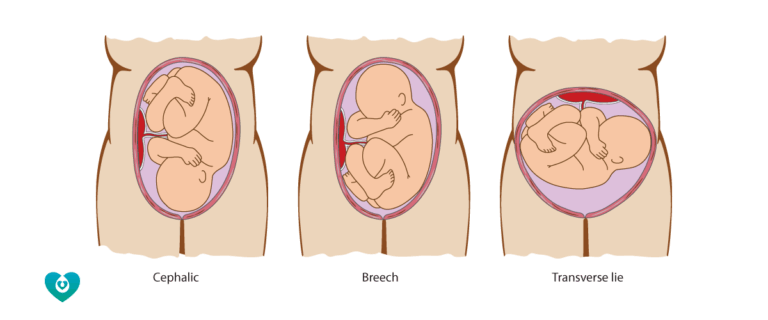If you’re planning to conceive in the next few months, you’ve probably come across the idea of doing a detox beforehand. It’s a fair question—and a good one. Because yes, your body does naturally detox every day. But there are certain circumstances where targeted support can make a meaningful difference to your fertility.
This isn’t about juice cleanses or 10-day “resets.” It’s about improving how your liver, gut, and hormonal systems function—especially in the critical window before conception. Let’s look at what a fertility detox really involves, when it’s appropriate, and how we approach it at Acumamas using evidence-based naturopathic care.
What We Mean by “Fertility Detox”
A pre-pregnancy detox is a process of preparing the body to support conception by improving metabolic efficiency, hormone clearance, nutrient status, and inflammatory load. At its core, it’s a strategy to optimize your internal environment before an embryo ever implants.
We focus primarily on:
- Supporting liver function to metabolize excess hormones
- Improving gut health for proper elimination and nutrient absorption
- Stabilizing blood sugar and lowering systemic inflammation
- Identifying and addressing micronutrient deficiencies
- Reducing toxic burden from environmental and dietary sources
This isn’t guesswork. These are common contributors to hormone dysregulation, irregular cycles, and suboptimal egg quality—issues we often see in clinical practice, even in women with no diagnosed fertility condition.
When to Start Detoxing (and Why It Matters)
The ideal time to begin a fertility-focused detox is three to six months before conception. That’s because it takes about 90 days for ovarian follicles to mature into ovulatory eggs. By supporting your health during that window, you’re not just influencing hormone balance—you’re potentially improving egg quality itself.
A longer preconception window also gives us time to:
- Replete key nutrients that support pregnancy (iron, B12, folate, choline)
- Taper off medications or supplements that may interfere with implantation
- Stabilize thyroid and adrenal function, which affect cycle regularity
- Review and modify lifestyle factors that increase toxic load or stress hormones
For those undergoing assisted reproduction (IUI or IVF), this window becomes even more important, as we want your body as regulated and resilient as possible going into treatment.
What a Fertility Detox Looks Like in Practice
At Acumamas, every detox protocol is personalized. That said, most of our plans include the following foundational elements:
Liver Support
Your liver plays a central role in breaking down estrogen and other hormones. If that process slows down, it can lead to estrogen dominance, luteal phase issues, and PMS symptoms.
We may support liver detox pathways through:
- Nutritional strategies (e.g. cruciferous vegetables, bitter greens, sulphur-rich foods)
- Herbal support (like milk thistle or dandelion, when appropriate)
- Methylated B vitamins and magnesium to support phase I and II detoxification
Gut Optimization
The gut is where excess hormones are eliminated. Dysbiosis, constipation, or poor digestion can allow recirculation of metabolized estrogen and inflammatory byproducts.
We may recommend:
- Specific probiotics to support estrogen clearance and gut-lining integrity
- A moderate increase in dietary fiber (not high-fiber “cleanses”)
- Identifying and removing known dietary triggers like refined sugar or processed oils
Anti-inflammatory Nutrition
Chronic inflammation affects egg quality, uterine receptivity, and ovulation. We guide you in moving toward a whole foods diet centered on omega-3 fats, low glycemic carbs, and high-antioxidant vegetables—without extreme restriction or calorie cutting.
Targeted Supplementation
We don’t recommend supplementing blindly. But when appropriate, we’ll use nutrients with evidence to support fertility outcomes:
- CoQ10 to support mitochondrial function and egg quality
- NAC for antioxidant and liver support
- Methylated folate (L-5-MTHF) to prepare for healthy fetal development
- Adaptogens (like rhodiola or ashwagandha) if adrenal stress is present
Is Detoxing Safe if You’re Already Trying?
That depends. Once you’re actively trying to conceive or have begun a medicated fertility cycle, we typically pause any deeper detox protocols and shift focus to stabilizing and supporting reproductive function. Some herbs and nutrients that are beneficial preconceptionally may not be safe during implantation or early pregnancy. If you’re in this phase, our strategy changes: less clearing, more nourishing.
This is why timing and supervision matter. A proper fertility detox is not something you download from a blog—it’s something that should be done under the care of someone who understands reproductive physiology and what to adjust as you move through each phase.
The Emotional Layer
It’s also worth saying: preparing for pregnancy can be emotionally charged. Whether you’ve been trying for a while or you’re just starting, the process can bring up anxiety, pressure, even grief. That stress affects your body—especially your cortisol levels, sleep quality, digestion, and ovulation.
This is why we often integrate acupuncture or fertility counseling into your detox plan. The goal isn’t just to get your body ready, but to get your whole system—physical and emotional—into a state that can receive.
Bottom Line
A fertility detox isn’t essential for everyone. But for many, it can be a powerful reset that improves hormone function, supports egg quality, and increases your chances of a healthy conception.
It’s not about being perfect. It’s about being strategic—and giving your body the conditions it needs to do what it was designed to do.
If you’re thinking about trying to conceive in the next few months, this is the time to plan. Our team of naturopathic doctors and fertility acupuncturists can help you map out a preconception strategy that’s informed, realistic, and personalized.
Book a consult with our naturopathic doctor. Let’s give your body the best start.






